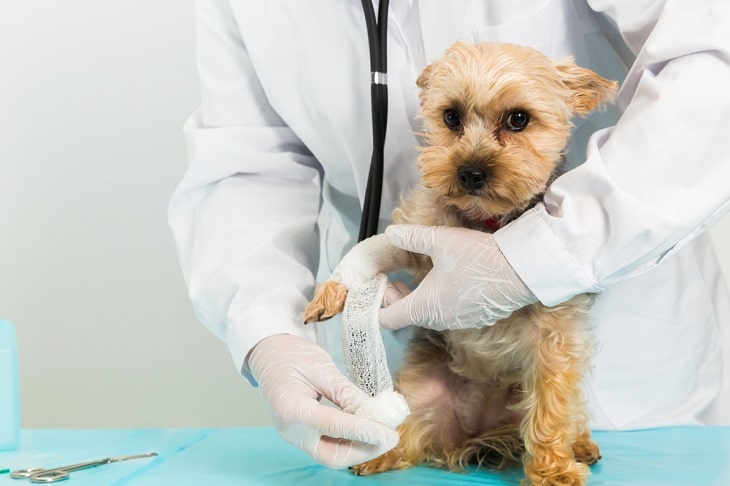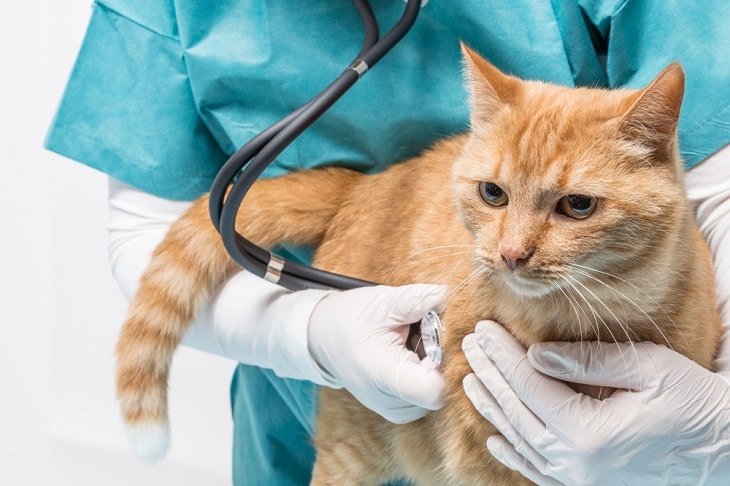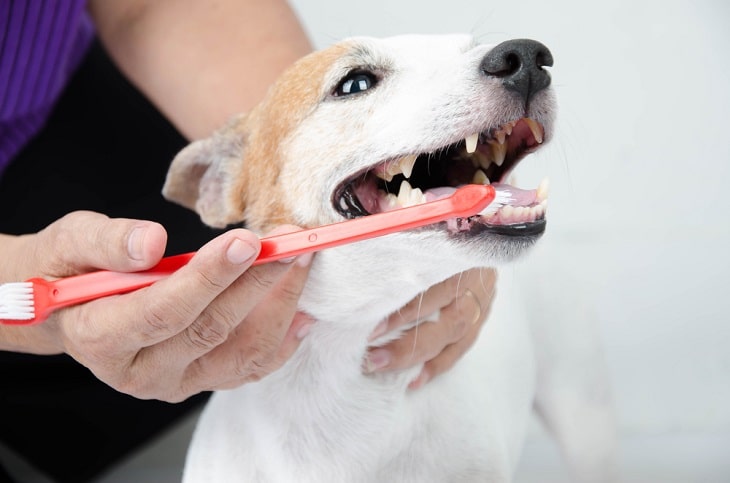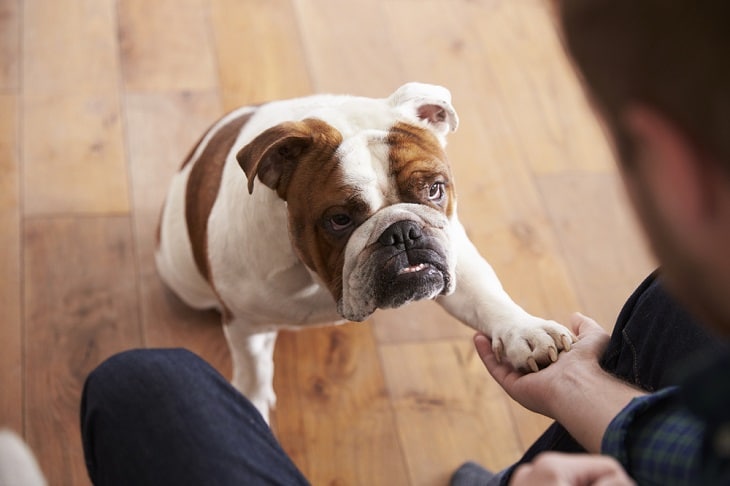Jasmine Birtles
Your money-making expert. Financial journalist, TV and radio personality.


How much do you think looking after your pets costs? You could be spending a lot more than you could possibly imagine. Figures from pet charity PDSA suggest looking after a dog costs between £57-£97 a month depending on breed size (that’s between £5,200 and £15,700 over the course of their life), while cats set owners back around £11,000 in their lifetime.
Despite these high costs, we are still willing to splurge on treats to please our pets. But the rocketing cost of living means some people are struggling with their pet bills, which is distressing as pets are part of the family.
So how can you deal with the ever-rising pet costs? Slash your expenditure with our handy guide to everything to do with pets.

Quite simply, get some! There is no NHS for pets, and there probably never will be. Don’t do away with pet insurance. It’s a false economy.
Sadly, every year over 300,000 pet dogs and cats are put down because their owners cannot afford the veterinary fees or ongoing medical costs of looking after their animals.
Vet and medication costs are increasing as more illnesses and disease becomes treatable. In fact, the cost of vet care went up by 50% between 2015 and 2024.
Pet insurance could easily save you thousands of pounds. To help you find the insurance best suited to your pet, read this article on pet insurance and compare premiums before you choose one.
There is one simple way to cut your pet’s costs and save an immense sum of cash. Don’t let your pet get overweight or obese. More than four in ten of the cats and dogs seen by Britain’s vets are overweight, according to research by Sainsbury’s Finance.
Many medical conditions suffered by pets are linked to or worsened by being overweight, costing you dearly in extra vet fees and medication costs. You could also risk invalidating any pet insurance claim if you’re found to have not taken proper care of your pet.
Dogs and cats need daily exercise. It’s great for keeping weight off and providing stimulation for them.
If your dog is ‘hyper’, getting into trouble and making lots of noise he’s probably bored! Regular exercise is essential for dogs and it’s free! Plus, the fresh air and cobweb blowing won’t do you any harm either.
If you don’t like the thought of walking alone, get a friend to come along or join a dog walking group. Ask your vet, pet shop or local dog training group if they know of one locally – or why not set up your own?
Exercise isn’t just physical, either. Mental stimulation is incredibly important for pets, and will significantly reduce their boredom. Did you know that a ten-minute ‘sniff and find’ game with your dog is the equivalent to 30 minutes of exercise? This is particularly important to know if your dog is a working breed such as a gundog or terrier, as they are bred to be mentally switched on all the time and need brain games and tasks to satisfy their natural behaviour. You can also make meal and treat times take a lot longer with lick mats. Simply spread their food (if it is a meat paste type) on it, or use products like Greek yoghurt or peanut butter. Make sure the peanut butter is 100% peanuts without added oil or salt, like Lidl’s 1kg own brand pot (£3.99 at time of writing). Once spread on the mat, you can freeze it to make the treat last even longer for your pet!
Always make sure you have your pets vaccinated when you first get them. Check with your vet to find out how old they should be when they get their first shots.
Annual boosters are also generally recommended for cats and dogs – along with a check-up – but there is much debate about whether or not they are necessary over time. If you plan to put your pet in kennels or into a doggy daycare, you will need to keep up with your regular vaccinations (including kennel cough) as most places won’t board or take your pet without them.
When it comes to booster time, discuss your pet’s lifestyle, age and habits with your vet. There is an argument that as cats and dogs get older, they stray less and generally don’t fight with other animals.
You may have an indoor pet less likely to come into contact with other animals. Your vet will also know which diseases (such as cat flu) are prevalent in your area and can advise accordingly.
To save on vaccinations for your pets, you should take a three-year vaccination plan as opposed to a yearly one.

After food, shelter and the odd vet visit, flea and other pest control will be your main regular maintenance cost.
Don’t waste your money on supermarket treatments – they seldom work effectively because they’re not strong enough. Get a recommendation from your vet, then shop online for the product. It’s cheeky, but much cheaper than paying through the nose at the vet. However, check whether your vet offers a monthly subscription service. This will usually include the annual worming and flea treatment for your pet, as well as a health check, nail clip, dental check, and annual vaccines, as well as discounts on other services. It can mean significant savings across your pet’s lifetime.
Since the relaxation in prescription selling regulations, you can also get repeat prescription medicines online. Just choose your online site carefully and buy from a UK company like Vet UK or Vio Vet.
Generally speaking, flea and worming treatments cost up to £95 a year for a cat and £76 a year for a small dog.
Flea treatments for dogs and cats are different. Buying one treatment for dogs and using it on the cat too (or vice versa) is not a good money saving tip because you’re liable to poison your pet!
Put the vet in the diary – if you keep up to date with vaccinations you’ll reduce the risk of your pet getting ill, saving you money in the long run.
When it comes to food, you don’t want to sacrifice quality. You probably do need to reduce the quantity. Because most pets are overweight, reducing their portions will save money on food bills – and on vet bills down the line.
Like us, pets are what they eat. When was the last time you read the label on the back of a dog food packet? Feeding them cheap food and treats can lead to obesity and allergies – which cost money to treat.
In effect, good quality food actually costs less than poor quality food per portion, because animals need to eat less good food to get enough nutrition.
Take a look at this pet food cost comparison chart and check out the Campaign for Real Pet Food for more information on what really goes into those pouches and bags.
Remember dry food goes a lot further than wet food and you won’t have to compromise on quality. The feeding instructions on pet food can also be astronomically out of line with what your pet needs, depending on their size and activity level. Try reducing the portions bit by bit, until your pet seems to actually be hungry before a mealtime (rather than trained to eat what’s in its bowl).
Look for subscription discounts, too. Many online pet retailers will offer a repeat subscription order for pet food so you never run out, including a small 5- or 10% discount for your loyalty. Over the course of a year, that could mean a saving of hundreds of pounds!
There’s no such thing as a free lunch, but most vets, pet shops and online shops have free or low-cost samples for you to try before you dive head first into a 7kg bag.
If you can’t find what you’re looking for online, just call the company – they’re usually happy to help with free advice and information on the best product to try.
Look for food that lists single protein sources – chicken, lamb, white fish, and so on – as primary ingredients.
Make sure good includes wholegrain carbs like brown rice, whole veg, carrots, and broccoli, as well as clear lists of vitamins and minerals.
Lastly, shop at an independent pet shop. If they’re worth their salt they’ll have lots of good advice and recommendations on food that’s right for your pet.
Simply avoid food that lists animal and meat derivatives, derivatives of vegetable origin, EC-permitted colours and EC-permitted additives in their ingredients.
Don’t get food with carbohydrate fillers like tapioca or modified starch. Picture them as a bucket of wallpaper paste, with about as much nutritional value and culinary appeal! Also, look for added sugar – if there is any added sugar ingredient, put it back on the shelf. Refined sugar is not part of a natural diet for any animal, and can contribute to health problems. (Sugars from natural sources such as fruit and veggies is fine in moderation, we’re talking about refined sugar cane products).
Don’t buy food just because someone says you should. That includes the big pet warehouses (who will often try and push their own brands) and the vets, who the big companies love to schmooze, offering vets great margins.
In a nutshell, read the label, trust your gut, and don’t be afraid to try new things.
Feeding your pets great food followed by awful treats is a waste of cash! There are plenty of healthy treats out there made of just meat, or fish, or unusual things like sweet potato.
Again, avoid animal and meat derivatives. You’re paying good money for by-products.
Remember that your pets can also eat some human food. If you have leftovers, share some. Or, when you’re chopping up carrots for your Sunday roast, give one to your dog to chomp on, too. Some foods are poisonous to pets, so make sure to read the ASPCA’s list of toxic foods before you share from your plate.
This couldn’t be simpler or cheaper – plus you’ll know exactly what’s in them. Experiment with chicken and catnip jelly for the cat, or bacon flapjacks for the dog. There are plenty of recipes to find online – start with this one from the RSPCA.

If you have a dog, brushing their teeth daily can end up saving your pet from contracting a lot of diseases. Remember to buy toothbrush and toothpaste that are designed for your pet, otherwise it can upset their stomachs. If your pet resists having a toothbrush in their mouth, you can start off with ‘finger toothbrushes’ that slip over your fingertip and let you rub their teeth directly.
Owning a pet doesn’t have to be as expensive as you think. Clothes, jewel-encrusted collars and pricey toys are just extras that you like. The dog couldn’t care less! Look at what you do for your pet, cut out the unnecessary stuff and try some of these money-saving tips.
Sometimes the least expensive place to find pet supplies is in the human section of a store. Baby gates often sell for much less at baby shops than pet shops!
You can buy beds, leads, collars, crates and toys from charity shops and online websites for cheap. Hunt down a good bargain by being extra savvy with where you purchase.
How many odd socks do you own? Got a fleece top that’s seen better days? Don’t chuck them out, make toys from them for little or no money.
This free site has loads of toy-making projects and ideas for pet stuff, everything from making party hats and costumes to jumps and assault courses for the more adventurous pet owner in you!
Fleece material is great for making tug toys because it’s brightly coloured, doesn’t fray and you can just stick it in the wash when it gets slobbered over one too many times. Fleece makes great cat toys too, especially the bright colours.
Try giving them empty cardboard boxes to play with, or hiding food inside old toilet roll tubes. Any cat owner will know that if there is a cardboard box to be discovered, the cat will enjoy the box more than the scratching tower that came in it. You can also consider pampering your cat with regular grooming sessions – no need to pay for a professional to do it!
Charity shops are a great place for old kids’ toys which make wonderful pet toys. Buy inexpensive squeakers and sew them into the toys. Your pets will only see a new toy.
Sometimes the best toys are already in your overflowing toy basket. Most dogs and cats have piles of toys they never use. It’s like today’s kids!
So, as with children, rotate their toys to keep them interested. Pick up two-thirds of them and put them away. Every couple of weeks, rotate one-third of the toys back out on the floor. Your pets will feel the fun of new toys – and you’ll have the fun of giving them something – without spending a penny.
A word of caution: Always supervise your pets when they’ve got a toy or chew, whether it’s shop bought or home made. And NEVER let them play with string or add it to a toy. String is easily swallowed and can literally tie intestines in knots.
A pet house is a luxurious addition for your dog, whether they live indoors or outdoors. It will provide your pet shade from the rain, hot sun, snow, wind and generally give them their own space. Save the money on a pet house by making one at home.You can build a pet house easily with equally cheap materials including cardboard and recycled materials.
Talk to your vet and boarding kennels. Do they run special offers? Will they give a discount if you bring in multiple pets at one time?

The nights are getting shorter, so switch off the telly and teach the dog (and cat – it is possible!) new tricks. Visit Dog Trick Academy to download dog tricks from professional dog trainers for free. Or amaze your friends by teaching your cat to shake your hand, sit, and come when called at British Psychological Society.
Joining a local training group isn’t going to break the bank. Shop around but expect to pay £15 an hour. An eight week course usually costs around £100 – but it is worth every penny!
Most groups incorporate behaviour, nutrition, grooming advice and training into one course, all of which will save you more money in the future.
Training bonds dogs and their owners, plus they’ll be less likely to have accidents because they will be under your control.
You’ll learn a lot and you’ll get to meet other dog owners who can point you in the direction of that walking group you were looking for! Search the web or ask at the vets or pet shop to recommend local groups.

Keep fit by becoming a professional dog walker and earn money from pet sitting. Check out our article all about making money pet sitting here.
You could go the whole hog and combine pet sitting with house sitting for a living – or just to earn extra cash in the holidays.
Animal Aunts offers a full house and pet sitting service to its members. Just bear in mind that all sitters must be fully DBS checked and interviewed before being accepted – plus it’s a big time commitment as you move into the house for the duration of the job.
If you work from home already, why not spend a few weeks of the year being an animal aunt? Rates vary depending on the job and location, but expect up to £80 per day looking after the dog, watering the plants and tickling the fish!

You you could change the page subject Pets: Slash Your Costs | Moneymagpie to something more catching for your webpage you write. I enjoyed the post yet.
Good point – I think we will!